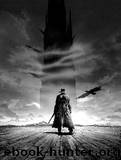Childe Roland to the Dark Tower Came by Robert Browning

Author:Robert Browning
Language: eng
Format: mobi, epub
Tags: Poetry texts & anthologies, Poetry & poets, Poetry, Poetry Texts & Poetry Anthologies, General
ISBN: 9781857996579
Publisher: PHOENIX
Published: 1996-02-05T08:00:00+00:00
NOTES
"Childe Roland" symbolizes the conquest of despair by fealty to the ideal. Browning emphatically disclaimed any precise allegorical intention in this poem. He acknowledged only an ideal purport in which the significance of the whole, as suggesting a vision of life and the saving power of constancy, had its due place. Certain picturesque materials which had made their impressions on the poet's mind contributed towards the building up of this realistic fantasy: a tower he saw in the Carrara Mountains; a painting which caught his eye later in Paris; the figure of a horse in the tapestry in his own drawing–room—welded together with the remembrance of the line cited from King Lear, iii. 4, 187, which last, it should be remembered, has a background of ballads and legend cycles of which a man like Browning was not unaware. For allegorical schemes of the Poem see Nettleship's "Essays and Thoughts," and The Critic, Apr. 24, 1886; for an antidote to these, The Critic, May 8, 1886; an orthodox view, Poet–lore, Nov. 1890: for interpretations touching on the ballad sources, London Browning Society Papers, part iii. p. 21, and Poet–lore, Aug.–Sept. 1892.
When Browning was asked by Rev. Dr. J.W. Chadwick whether the central idea of this poem was constancy to an ideal,—"He that endureth to the end shall be saved,"—he answered, "Yes, just about that."
Note the hero's mood of doubt and despair. At what point in his quest do we see him? What does he do after meeting the cripple? How does the landscape seem as he goes on? What moral quality does it seem to have? See lines 56–75. What new elements are introduced to add to the horror of the scene? What memories come to him of the failures of his friends? Was their disgrace in physical or moral failure? How does he come to find the Tower? Why does Browning represent it as a "dark tower"? Does his courage fail at the end of his quest? Or does he win the victory in finding the tower and blowing the challenge?
–THE END–
Download
Childe Roland to the Dark Tower Came by Robert Browning.epub
This site does not store any files on its server. We only index and link to content provided by other sites. Please contact the content providers to delete copyright contents if any and email us, we'll remove relevant links or contents immediately.
| Ancient, Classical & Medieval | Anthologies |
| British & Irish | Japanese & Haiku |
| Love Poems | Regional & Cultural |
| Themes & Styles | United States |
| Women Authors |
The Universe of Us by Lang Leav(15068)
The Sun and Her Flowers by Rupi Kaur(14510)
Adultolescence by Gabbie Hanna(8922)
Whiskey Words & a Shovel II by r.h. Sin(8009)
Love Her Wild by Atticus(7753)
Smoke & Mirrors by Michael Faudet(6184)
Wiseguy by Nicholas Pileggi(5770)
The Princess Saves Herself in This One by Amanda Lovelace(4973)
Love & Misadventure by Lang Leav(4843)
Memories by Lang Leav(4795)
Milk and Honey by Rupi Kaur(4742)
Bluets by Maggie Nelson(4548)
Too Much and Not the Mood by Durga Chew-Bose(4338)
Pillow Thoughts by Courtney Peppernell(4272)
Good morning to Goodnight by Eleni Kaur(4232)
The Poetry of Pablo Neruda by Pablo Neruda(4098)
Algedonic by r.h. Sin(4056)
HER II by Pierre Alex Jeanty(3605)
Stuff I've Been Feeling Lately by Alicia Cook(3449)
